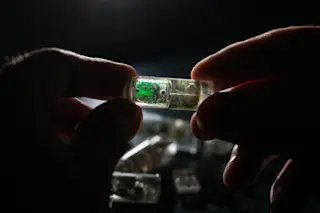Treating the human gut has always been difficult — the tools used to measure its health are imprecise and usually highly invasive.
In a capsule endoscopy, for example, doctors take snapshots with ingestible cameras, but the devices don’t measure chemical composition, a more revealing barometer of gut health. Stool tests are limited in what they can detect, and surgical biopsies are disruptive.
New directions in research, however, are revealing potentially more accurate and less invasive ways to determine gut health. These methods could revolutionize early detection of gastrointestinal diseases such as Crohn’s disease, colon cancer and irritable bowel syndrome.
Several teams are working on biosensor capsules that are swallowed. Unlike camera pills that merely take images, the capsules carry genetically engineered bacteria programmed to detect biological signals in the gut, such as inflammation. The data can be sent to smartphones or other devices to relay information in real time.
A ...















